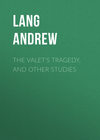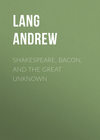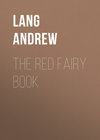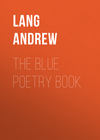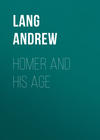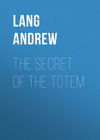Kitabı oku: «Waverley; Or, 'Tis Sixty Years Since», sayfa 15
CHAPTER XVI
AN UNEXPECTED ALLY APPEARS
The Baron returned at the dinner-hour, and had in a great measure recovered his composure and good-humour. He not only confirmed the stories which Edward had heard from Rose and Bailie Macwheeble, but added many anecdotes from his own experience, concerning the state of the Highlands and their inhabitants. The chiefs he pronounced to be, in general, gentlemen of great honour and high pedigree, whose word was accounted as a law by all those of their own sept, or clan. ‘It did not indeed,’ he said, ‘become them, as had occurred in late instances, to propone their prosapia, a lineage which rested for the most part on the vain and fond rhymes of their seannachies or bhairds, as aequiponderate with the evidence of ancient charters and royal grants of antiquity, conferred upon distinguished houses in the Low Country by divers Scottish monarchs; nevertheless, such was their outrecuidance and presumption, as to undervalue those who possessed such evidents, as if they held their lands in a sheep’s skin.’
This, by the way, pretty well explained the cause of quarrel between the Baron and his Highland ally. But he went on to state so many curious particulars concerning the manners, customs, and habits of this patriarchal race that Edward’s curiosity became highly interested, and he inquired whether it was possible to make with safety an excursion into the neighbouring Highlands, whose dusky barrier of mountains had already excited his wish to penetrate beyond them. The Baron assured his guest that nothing would be more easy, providing this quarrel were first made up, since he could himself give him letters to many of the distinguished chiefs, who would receive him with the utmost courtesy and hospitality.
While they were on this topic, the door suddenly opened, and, ushered by Saunders Saunderson, a Highlander, fully armed and equipped, entered the apartment. Had it not been that Saunders acted the part of master of the ceremonies to this martial apparition, without appearing to deviate from his usual composure, and that neither Mr. Bradwardine nor Rose exhibited any emotion, Edward would certainly have thought the intrusion hostile. As it was, he started at the sight of what he had not yet happened to see, a mountaineer in his full national costume. The individual Gael was a stout, dark, young man, of low stature, the ample folds of whose plaid added to the appearance of strength which his person exhibited. The short kilt, or petticoat, showed his sinewy and clean-made limbs; the goatskin purse, flanked by the usual defences, a dirk and steel-wrought pistol, hung before him; his bonnet had a short feather, which indicated his claim to be treated as a duinhe-wassel, or sort of gentleman; a broadsword dangled by his side, a target hung upon his shoulder, and a long Spanish fowling-piece occupied one of his hands. With the other hand he pulled off his bonnet, and the Baron, who well knew their customs, and the proper mode of addressing them, immediately said, with an air of dignity, but without rising, and much, as Edward thought, in the manner of a prince receiving an embassy, ‘Welcome, Evan Dhu Maccombich; what news from Fergus Mac-Ivor Vich Ian Vohr?’
‘Fergus Mac-Ivor Vich Ian Vohr,’ said the ambassador, in good English, ‘greets you well, Baron of Bradwardine and Tully-Veolan, and is sorry there has been a thick cloud interposed between you and him, which has kept you from seeing and considering the friendship and alliances that have been between your houses and forebears of old; and he prays you that the cloud may pass away, and that things may be as they have been heretofore between the clan Ivor and the house of Bradwardine, when there was an egg between them for a flint and a knife for a sword. And he expects you will also say, you are sorry for the cloud, and no man shall hereafter ask whether it descended from the hill to the valley, or rose from the valley to the hill; for they never struck with the scabbard who did not receive with the sword, and woe to him who would lose his friend for the stormy cloud of a spring morning.’
To this the Baron of Bradwardine answered with suitable dignity, that he knew the chief of Clan Ivor to be a well-wisher to the King, and he was sorry there should have been a cloud between him and any gentleman of such sound principles, ‘for when folks are banding together, feeble is he who hath no brother.’
This appearing perfectly satisfactory, that the peace between these august persons might be duly solemnised, the Baron ordered a stoup of usquebaugh, and, filling a glass, drank to the health and prosperity of Mac-Ivor of Glennaquoich; upon which the Celtic ambassador, to requite his politeness, turned down a mighty bumper of the same generous liquor, seasoned with his good wishes to the house of Bradwardine.
Having thus ratified the preliminaries of the general treaty of pacification, the envoy retired to adjust with Mr. Macwheeble some subordinate articles with which it was not thought necessary to trouble the Baron. These probably referred to the discontinuance of the subsidy, and apparently the Bailie found means to satisfy their ally, without suffering his master to suppose that his dignity was compromised. At least, it is certain, that after the plenipotentiaries had drunk a bottle of brandy in single drams, which seemed to have no more effect upon such seasoned vessels than if it had been poured upon the two bears at the top of the avenue, Evan Dhu Maccombich, having possessed himself of all the information which he could procure respecting the robbery of the preceding night, declared his intention to set off immediately in pursuit of the cattle, which he pronounced to be ‘no that far off; they have broken the bone,’ he observed, ‘but they have had no time to suck the marrow.’
Our hero, who had attended Evan Dhu during his perquisitions, was much struck with the ingenuity which he displayed in collecting information, and the precise and pointed conclusions which he drew from it. Evan Dhu, on his part, was obviously flattered with the attention of Waverley, the interest he seemed to take in his inquiries, and his curiosity about the customs and scenery of the Highlands. Without much ceremony he invited Edward to accompany him on a short walk of ten or fifteen miles into the mountains, and see the place where the cattle were conveyed to; adding, ‘If it be as I suppose, you never saw such a place in your life, nor ever will, unless you go with me or the like of me.’
Our hero, feeling his curiosity considerably excited by the idea of visiting the den of a Highland Cacus, took, however, the precaution to inquire if his guide might be trusted. He was assured that the invitation would on no account have been given had there been the least danger, and that all he had to apprehend was a little fatigue; and, as Evan proposed he should pass a day at his Chieftain’s house in returning, where he would be sure of good accommodation and an excellent welcome, there seemed nothing very formidable in the task he undertook. Rose, indeed, turned pale when she heard of it; but her father, who loved the spirited curiosity of his young friend, did not attempt to damp it by an alarm of danger which really did not exist, and a knapsack, with a few necessaries, being bound on the shoulders of a sort of deputy gamekeeper, our hero set forth with a fowling-piece in his hand, accompanied by his new friend Evan Dhu, and followed by the gamekeeper aforesaid, and by two wild Highlanders, the attendants of Evan, one of whom had upon his shoulder a hatchet at the end of a pole, called a Lochaber-axe, [Footnote: See Note 14] and the other a long ducking-gun. Evan, upon Edward’s inquiry, gave him to understand that this martial escort was by no means necessary as a guard, but merely, as he said, drawing up and adjusting his plaid with an air of dignity, that he might appear decently at Tully-Veolan, and as Vich Ian Vohr’s foster-brother ought to do. ‘Ah!’ said he, ‘if you Saxon duinhe-wassel (English gentleman) saw but the Chief with his tail on!’
‘With his tail on?’ echoed Edward in some surprise.
‘Yes – that is, with all his usual followers, when he visits those of the same rank. There is,’ he continued, stopping and drawing himself proudly up, while he counted upon his fingers the several officers of his chief’s retinue; ‘there is his hanchman, or right-hand man; then his bard, or poet; then his bladier, or orator, to make harangues to the great folks whom he visits; then his gilly-more, or armour-bearer, to carry his sword and target, and his gun; then his gilly-casfliuch, who carries him on his back through the sikes and brooks; then his gilly-comstrian, to lead his horse by the bridle in steep and difficult paths; then his gilly-trushharnish, to carry his knapsack; and the piper and the piper’s man, and it may be a dozen young lads beside, that have no business, but are just boys of the belt, to follow the Laird and do his honour’s bidding.’
‘And does your Chief regularly maintain all these men?’ demanded Waverley.
‘All these?’ replied Evan; ‘ay, and many a fair head beside, that would not ken where to lay itself, but for the mickle barn at Glennaquoich.’
With similar tales of the grandeur of the Chief in peace and war, Evan Dhu beguiled the way till they approached more closely those huge mountains which Edward had hitherto only seen at a distance. It was towards evening as they entered one of the tremendous passes which afford communication between the high and low country; the path, which was extremely steep and rugged, winded up a chasm between two tremendous rocks, following the passage which a foaming stream, that brawled far below, appeared to have worn for itself in the course of ages. A few slanting beams of the sun, which was now setting, reached the water in its darksome bed, and showed it partially, chafed by a hundred rocks and broken by a hundred falls. The descent from the path to the stream was a mere precipice, with here and there a projecting fragment of granite, or a scathed tree, which had warped its twisted roots into the fissures of the rock. On the right hand, the mountain rose above the path with almost equal inaccessibility; but the hill on the opposite side displayed a shroud of copsewood, with which some pines were intermingled.
‘This,’ said Evan, ‘is the pass of Bally-Brough, which was kept in former times by ten of the clan Donnochie against a hundred of the Low-Country carles. The graves of the slain are still to be seen in that little corrie, or bottom, on the opposite side of the burn; if your eyes are good, you may see the green specks among the heather. See, there is an earn, which you Southrons call an eagle. You have no such birds as that in England. He is going to fetch his supper from the Laird of Bradwardine’s braes, but I ‘ll send a slug after him.’
He fired his piece accordingly, but missed the superb monarch of the feathered tribes, who, without noticing the attempt to annoy him, continued his majestic flight to the southward. A thousand birds of prey, hawks, kites, carrion-crows, and ravens, disturbed from the lodgings which they had just taken up for the evening, rose at the report of the gun, and mingled their hoarse and discordant notes with the echoes which replied to it, and with the roar of the mountain cataracts. Evan, a little disconcerted at having missed his mark, when he meant to have displayed peculiar dexterity, covered his confusion by whistling part of a pibroch as he reloaded his piece, and proceeded in silence up the pass.
It issued in a narrow glen, between two mountains, both very lofty and covered with heath. The brook continued to be their companion, and they advanced up its mazes, crossing them now and then, on which occasions Evan Dhu uniformly offered the assistance of his attendants to carry over Edward; but our hero, who had been always a tolerable pedestrian, declined the accommodation, and obviously rose in his guide’s opinion, by showing that he did not fear wetting his feet. Indeed he was anxious, so far as he could without affectation, to remove the opinion which Evan seemed to entertain of the effeminacy of the Lowlanders, and particularly of the English.
Through the gorge of this glen they found access to a black bog, of tremendous extent, full of large pit-holes, which they traversed with great difficulty and some danger, by tracks which no one but a Highlander could have followed. The path itself, or rather the portion of more solid ground on which the travellers half walked, half waded, was rough, broken, and in many places quaggy and unsound. Sometimes the ground was so completely unsafe that it was necessary to spring from one hillock to another, the space between being incapable of bearing the human weight. This was an easy matter to the Highlanders, who wore thin-soled brogues fit for the purpose, and moved with a peculiar springing step; but Edward began to find the exercise, to which he was unaccustomed, more fatiguing than he expected. The lingering twilight served to show them through this Serbonian bog, but deserted them almost totally at the bottom of a steep and very stony hill, which it was the travellers’ next toilsome task to ascend. The night, however, was pleasant, and not dark; and Waverley, calling up mental energy to support personal fatigue, held on his march gallantly, though envying in his heart his Highland attendants, who continued, without a symptom of abated vigour, the rapid and swinging pace, or rather trot, which, according to his computation, had already brought them fifteen miles upon their journey.
After crossing this mountain and descending on the other side towards a thick wood, Evan Dhu held some conference with his Highland attendants, in consequence of which Edward’s baggage was shifted from the shoulders of the gamekeeper to those of one of the gillies, and the former was sent off with the other mountaineer in a direction different from that of the three remaining travellers. On asking the meaning of this separation, Waverley was told that the Lowlander must go to a hamlet about three miles off for the night; for unless it was some very particular friend, Donald Bean Lean, the worthy person whom they supposed to be possessed of the cattle, did not much approve of strangers approaching his retreat. This seemed reasonable, and silenced a qualm of suspicion which came across Edward’s mind when he saw himself, at such a place and such an hour, deprived of his only Lowland companion. And Evan immediately afterwards added, ‘that indeed he himself had better get forward, and announce their approach to Donald Bean Lean, as the arrival of a sidier roy (red soldier) might otherwise be a disagreeable surprise.’ And without waiting for an answer, in jockey phrase, he trotted out, and putting himself to a very round pace, was out of sight in an instant.
Waverley was now left to his own meditations, for his attendant with the battle-axe spoke very little English. They were traversing a thick, and, as it seemed, an endless wood of pines, and consequently the path was altogether indiscernible in the murky darkness which surrounded them. The Highlander, however, seemed to trace it by instinct, without the hesitation of a moment, and Edward followed his footsteps as close as he could.
After journeying a considerable time in silence, he could not help asking, ‘Was it far to the end of their journey?’
‘Ta cove was tree, four mile; but as duinhe-wassel was a wee taiglit, Donald could, tat is, might – would – should send ta curragh.’
This conveyed no information. The curragh which was promised might be a man, a horse, a cart, or chaise; and no more could be got from the man with the battle-axe but a repetition of ‘Aich ay! ta curragh.’
But in a short time Edward began to conceive his meaning, when, issuing from the wood, he found himself on the banks of a large river or lake, where his conductor gave him to understand they must sit down for a little while. The moon, which now began to rise, showed obscurely the expanse of water which spread before them, and the shapeless and indistinct forms of mountains with which it seemed to be surrounded. The cool and yet mild air of the summer night refreshed Waverley after his rapid and toilsome walk; and the perfume which it wafted from the birch trees, [Footnote: It is not the weeping birch, the most common species in the Highlands, but the woolly-leaved Lowland birch, that is distinguished by this fragrance.] bathed in the evening dew, was exquisitely fragrant.
He had now time to give himself up to the full romance of his situation. Here he sate on the banks of an unknown lake, under the guidance of a wild native, whose language was unknown to him, on a visit to the den of some renowned outlaw, a second Robin Hood, perhaps, or Adam o’ Gordon, and that at deep midnight, through scenes of difficulty and toil, separated from his attendant, left by his guide. What a variety of incidents for the exercise of a romantic imagination, and all enhanced by the solemn feeling of uncertainty at least, if not of danger! The only circumstance which assorted ill with the rest was the cause of his journey – the Baron’s milk-cows! this degrading incident he kept in the background.
While wrapt in these dreams of imagination, his companion gently touched him, and, pointing in a direction nearly straight across the lake, said, ‘Yon’s ta cove.’ A small point of light was seen to twinkle in the direction in which he pointed, and, gradually increasing in size and lustre, seemed to flicker like a meteor upon the verge of the horizon. While Edward watched this phenomenon, the distant dash of oars was heard. The measured sound approached near and more near, and presently a loud whistle was heard in the same direction. His friend with the battle-axe immediately whistled clear and shrill, in reply to the signal, and a boat, manned with four or five Highlanders, pushed for a little inlet, near which Edward was sitting. He advanced to meet them with his attendant, was immediately assisted into the boat by the officious attention of two stout mountaineers, and had no sooner seated himself than they resumed their oars, and began to row across the lake with great rapidity.
CHAPTER XVII
THE HOLD OF A HIGHLAND ROBBER
The party preserved silence, interrupted only by the monotonous and murmured chant of a Gaelic song, sung in a kind of low recitative by the steersman, and by the dash of the oars, which the notes seemed to regulate, as they dipped to them in cadence. The light, which they now approached more nearly, assumed a broader, redder and more irregular splendour. It appeared plainly to be a large fire, but whether kindled upon an island or the mainland Edward could not determine. As he saw it, the red glaring orb seemed to rest on the very surface of the lake itself, and resembled the fiery vehicle in which the Evil Genius of an Oriental tale traverses land and sea. They approached nearer, and the light of the fire sufficed to show that it was kindled at the bottom of a huge dark crag or rock, rising abruptly from the very edge of the water; its front, changed by the reflection to dusky red, formed a strange and even awful contrast to the banks around, which were from time to time faintly and partially illuminated by pallid moonlight.
The boat now neared the shore, and Edward could discover that this large fire, amply supplied with branches of pine-wood by two figures, who, in the red reflection of its light, appeared like demons, was kindled in the jaws of a lofty cavern, into which an inlet from the lake seemed to advance; and he conjectured, which was indeed true, that the fire had been lighted as a beacon to the boatmen on their return. They rowed right for the mouth of the cave, and then, shifting their oars, permitted the boat to enter in obedience to the impulse which it had received. The skiff passed the little point or platform of rock on which the fire was blazing, and running about two boats’ lengths farther, stopped where the cavern (for it was already arched overhead) ascended from the water by five or six broad ledges of rock, so easy and regular that they might be termed natural steps. At this moment a quantity of water was suddenly flung upon the fire, which sunk with a hissing noise, and with it disappeared the light it had hitherto afforded. Four or five active arms lifted Waverley out of the boat, placed him on his feet, and almost carried him into the recesses of the cave. He made a few paces in darkness, guided in this manner; and advancing towards a hum of voices, which seemed to sound from the centre of the rock, at an acute turn Donald Bean Lean and his whole establishment were before his eyes.
The interior of the cave, which here rose very high, was illuminated by torches made of pine-tree, which emitted a bright and bickering light, attended by a strong though not unpleasant odour. Their light was assisted by the red glare of a large charcoal fire, round which were seated five or six armed Highlanders, while others were indistinctly seen couched on their plaids in the more remote recesses of the cavern. In one large aperture, which the robber facetiously called his SPENCE (or pantry), there hung by the heels the carcasses of a sheep, or ewe, and two cows lately slaughtered. The principal inhabitant of this singular mansion, attended by Evan Dhu as master of the ceremonies, came forward to meet his guest, totally different in appearance and manner from what his imagination had anticipated. The profession which he followed, the wilderness in which he dwelt, the wild warrior forms that surrounded him, were all calculated to inspire terror. From such accompaniments, Waverley prepared himself to meet a stern, gigantic, ferocious figure, such as Salvator would have chosen to be the central object of a group of banditti. [Footnote: See Note 15.]
Donald Bean Lean was the very reverse of all these. He was thin in person and low in stature, with light sandy-coloured hair, and small pale features, from which he derived his agnomen of BEAN or white; and although his form was light, well proportioned and active, he appeared, on the whole, rather a diminutive and insignificant figure. He had served in some inferior capacity in the French army, and in order to receive his English visitor in great form, and probably meaning, in his way, to pay him a compliment, he had laid aside the Highland dress for the time, to put on an old blue and red uniform and a feathered hat, in which he was far from showing to advantage, and indeed looked so incongruous, compared with all around him, that Waverley would have been tempted to laugh, had laughter been either civil or safe. The robber received Captain Waverley with a profusion of French politeness and Scottish hospitality, seemed perfectly to know his name and connections, and to be particularly acquainted with his uncle’s political principles. On these he bestowed great applause, to which Waverley judged it prudent to make a very general reply.
Being placed at a convenient distance from the charcoal fire, the heat of which the season rendered oppressive, a strapping Highland damsel placed before Waverley, Evan, and Donald Bean three cogues, or wooden vessels composed of staves and hoops, containing eanaruich, [Footnote: This was the regale presented by Rob Roy to the Laird of Tullibody.] a sort of strong soup, made out of a particular part of the inside of the beeves. After this refreshment, which, though coarse, fatigue and hunger rendered palatable, steaks, roasted on the coals, were supplied in liberal abundance, and disappeared before Evan Dhu and their host with a promptitude that seemed like magic, and astonished Waverley, who was much puzzled to reconcile their voracity with what he had heard of the abstemiousness of the Highlanders. He was ignorant that this abstinence was with the lower ranks wholly compulsory, and that, like some animals of prey, those who practise it were usually gifted with the power of indemnifying themselves to good purpose when chance threw plenty in their way. The whisky came forth in abundance to crown the cheer. The Highlanders drank it copiously and undiluted; but Edward, having mixed a little with water, did not find it so palatable as to invite him to repeat the draught. Their host bewailed himself exceedingly that he could offer him no wine: ‘Had he but known four-and-twenty hours before, he would have had some, had it been within the circle of forty miles round him. But no gentleman could do more to show his sense of the honour of a visit from another than to offer him the best cheer his house afforded. Where there are no bushes there can be no nuts, and the way of those you live with is that you must follow,’
He went on regretting to Evan Dhu the death of an aged man, Donnacha an Amrigh, or Duncan with the Cap, ‘a gifted seer,’ who foretold, through the second sight, visitors of every description who haunted their dwelling, whether as friends or foes.
‘Is not his son Malcolm taishatr (a second-sighted person)?’ asked Evan.
‘Nothing equal to his father,’ replied Donald Bean. ‘He told us the other day, we were to see a great gentleman riding on a horse, and there came nobody that whole day but Shemus Beg, the blind harper, with his dog. Another time he advertised us of a wedding, and behold it proved a funeral; and on the creagh, when he foretold to us we should bring home a hundred head of horned cattle, we gripped nothing but a fat bailie of Perth.’
From this discourse he passed to the political and military state of the country; and Waverley was astonished, and even alarmed, to find a person of this description so accurately acquainted with the strength of the various garrisons and regiments quartered north of the Tay. He even mentioned the exact number of recruits who had joined Waverley’s troop from his uncle’s estate, and observed they were PRETTY MEN, meaning, not handsome, but stout warlike fellows. He put Waverley in mind of one or two minute circumstances which had happened at a general review of the regiment, which satisfied him that the robber had been an eye-witness of it; and Evan Dhu having by this time retired from the conversation, and wrapped himself up in his plaid to take some repose, Donald asked Edward, in a very significant manner, whether he had nothing particular to say to him.
Waverley, surprised and somewhat startled at this question from such a character, answered, he had no motive in visiting him but curiosity to see his extraordinary place of residence. Donald Bean Lean looked him steadily in the face for an instant, and then said, with a significant nod, ‘You might as well have confided in me; I am as much worthy of trust as either the Baron of Bradwardine or Vich Ian Vohr. But you are equally welcome to my house.’
Waverley felt an involuntary shudder creep over him at the mysterious language held by this outlawed and lawless bandit, which, in despite of his attempts to master it, deprived him of the power to ask the meaning of his insinuations. A heath pallet, with the flowers stuck uppermost, had been prepared for him in a recess of the cave, and here, covered with such spare plaids as could be mustered, he lay for some time watching the motions of the other inhabitants of the cavern. Small parties of two or three entered or left the place, without any other ceremony than a few words in Gaelic to the principal outlaw, and, when he fell asleep, to a tall Highlander who acted as his lieutenant, and seemed to keep watch during his repose. Those who entered seemed to have returned from some excursion, of which they reported the success, and went without farther ceremony to the larder, where, cutting with their dirks their rations from the carcasses which were there suspended, they proceeded to broil and eat them at their own pleasure and leisure. The liquor was under strict regulation, being served out either by Donald himself, his lieutenant, or the strapping Highland girl aforesaid, who was the only female that appeared. The allowance of whisky, however, would have appeared prodigal to any but Highlanders, who, living entirely in the open air and in a very moist climate, can consume great quantities of ardent spirits without the usual baneful effects either upon the brain or constitution.
At length the fluctuating groups began to swim before the eyes of our hero as they gradually closed; nor did he re-open them till the morning sun was high on the lake without, though there was but a faint and glimmering twilight in the recesses of Uaimh an Ri, or the King’s Cavern, as the abode of Donald Bean Lean was proudly denominated.

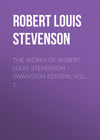

![XXXII Ballades in Blue China [1885]](https://cdn.litres.ru/pub/c/cover_100/25230660.jpg)
